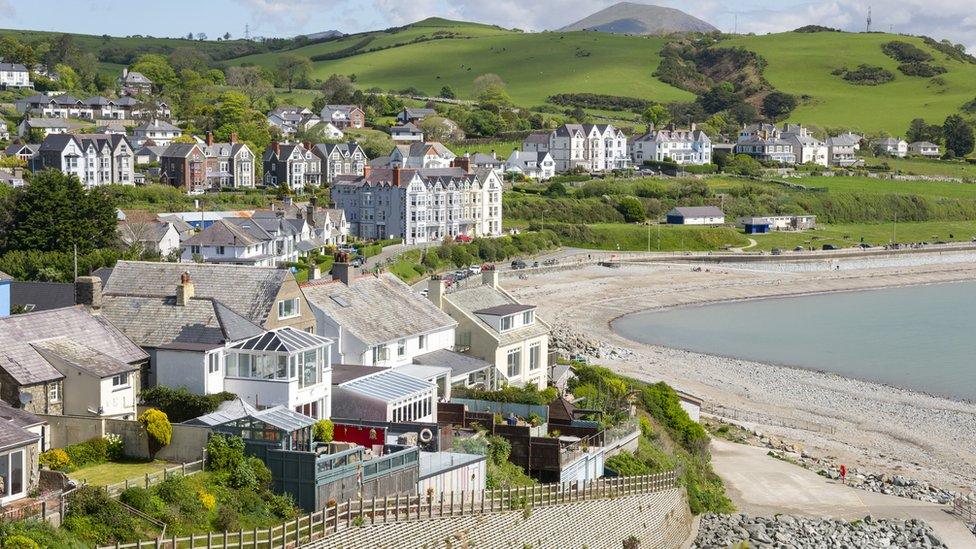Gwynedd housing: Shortage leaves dad living out of hotel
- Published
Liam McClelland says he was evicted after seeking advice about the property he lived in
A man evicted from his home after reporting problems with mould is one of hundreds of people in Wales facing homelessness amid a shortage of affordable housing.
Liam McClelland had privately rented a £500-per-month house in Criccieth, Gwynedd, for the past two years.
A lack of housing means he is now living in a Premier Inn.
The Welsh government said it was doing everything it could to end homelessness.
Mr McClelland, who works laying telecoms cables, says the only properties he could find in his area were more than £1,000 per month, which is out of his price range.
"I never thought it would happen, never," he said of being made homeless.
For the last two months he has trying to find a new home while engaging with Gwynedd council, who are providing him with temporary accommodation at the hotel in Porthmadog.
"It's going to be very tricky," Mr McClelland said. "Just normal day-to-day things like washing your clothes, having a meal. I'm going to have to eat out every night, which is something I can't really afford."
His biggest fear, however, is not being able to spend quality time with his children.
"My son is five and my daughter is three, and I won't be able to have them stay over with me in a hotel. It won't work."
There are significant concerns the council may soon not even be able to offer people temporary hotel accommodation either.
'Out of control'
Craig ab Iago, Gwynedd council's cabinet member for housing, said the local authority came "scarily close" to running out of hotel space last year. The same could happen in the near future, he warned, because not enough houses are being built.
There are currently 211 people in temporary accommodation in Gwynedd, including in hotels and B&Bs.
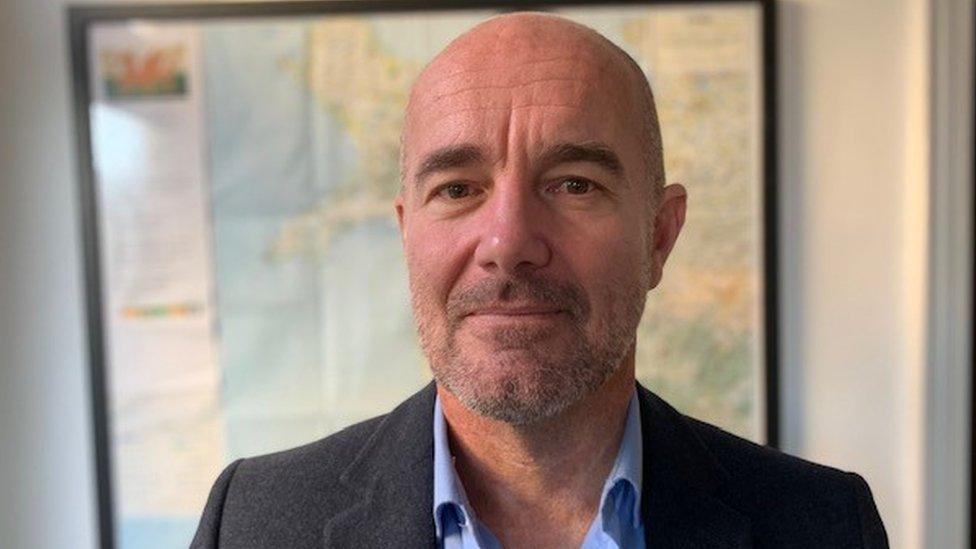
Craig ab Iago is concerned about being dependent on the tourism sector for housing
"Homelessness has been increasing for the last five years but since Covid it's gone out of control - it's crazy.
"We're now dependent on the tourist sector to help us home people without houses," he said.
With tourism set to boom this year, Mr ab Iago fears the local authority may not be able to house people.
He said there were many factors influencing availability of homes in the county, including a high percentage of second homes and holiday rentals.
But he stressed Gwynedd council could not address the root cause of homelessness.
"That's down to Cardiff and London to sort out," he said. "Homelessness and second homes and Airbnbs, they're all linked. But the underlying thing is the lack of affordable homes."
Gwynedd is working on a long-term solution to provide more housing, Mr ab Iago said.
But he said the local authority was spending £6m a year on putting people in temporary accommodation.
He appealed to residents who have second homes or empty properties to help the council solve the problem in the short term.
'One of the lucky ones'
Helen - not her real name - spent seven months in B&B accommodation before finally finding a permanent home two weeks ago.
"I have security for the first time in ages. I am safe," she said.
She lived with her family on the Llyn Peninsula in Gwynedd, but found herself homeless after soaring electricity costs forced her family to close their business.
Helen, in her mid-20s, said living in a B&B for so long was "horrific".
"The window was broken, so there was draft. It was also above a pub which was really noisy.
"My biggest bugbear was not having any kitchen facilities. There was a communal microwave which was usually shared between five or more people. Microwave meals for seven months really isn't good for you and it really affected my health. I put on weight and was feeling sluggish all the time.
"I've got a panic disorder as well, which got worse. And I was suffering from anxiety and depression."
She is relieved to no longer have to worry about private landlords increasing the rent or selling.
"I feel as though I can breathe again," she said.
"I'm one of the lucky ones. I've got friends, normal working people who are looking at potentially becoming homeless. I'm young and single, never mind my friends who are couples or have families and they just can't find anywhere to live."
'Numbers spiralling'
The problem is by no means confined to Gwynedd.
The Welsh Local Government Association (WLGA) said Wales was facing a "housing crisis," and the situation was "spiralling".
Andrea Lewis, deputy leader of Swansea council and the WLGA's spokesperson for housing, said: "I don't think there are any cities in Wales that aren't being affected by the rising numbers in homelessness."
She said local authorities and partner agencies were working closely with the Welsh government to build quality, affordable homes, but there was no overnight solution.
As the cost of living crisis deepens, the WLGA is also concerned more people will be unable to pay their mortgages, adding to the pressure on housing services.
Melville Evans from housing association Grwp Cynefin said the number of people presenting as homeless to local authorities and partner agencies was rising by about 500 every month.
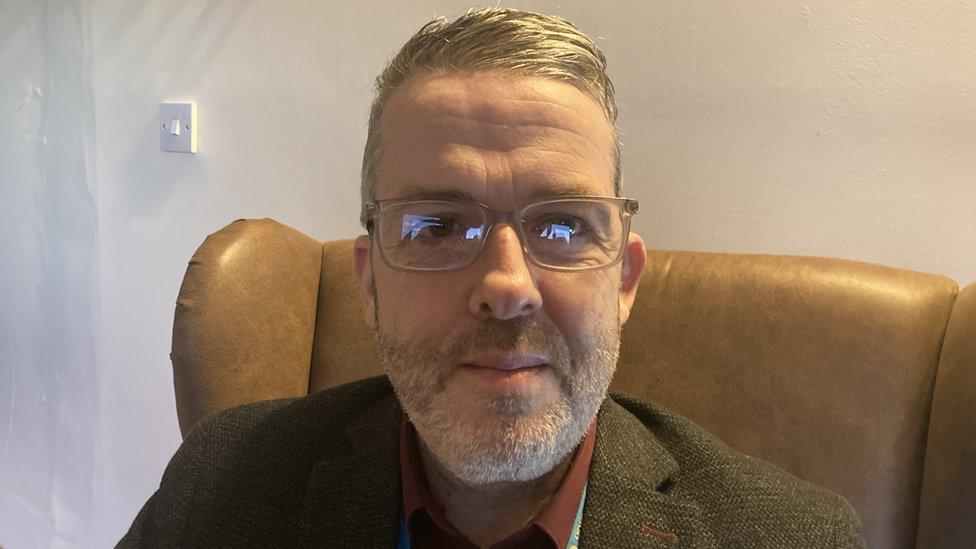
Melville Evans said a housing shortage and the cost of living crisis had created a "perfect storm"
"We've never seen a pattern of homelessness like this before in the country," he said.
Recent figures revealed that in the Gwent area 1,139 people are currently living in temporary accommodation.
As of July 2022, there were 251 households living in temporary accommodation in Caerphilly County Borough, 381 in Newport as of November 2022, and 279 in Monmouthshire. Torfaen's figure is slightly lower with 169 households living in temporary accommodation, and 59 households in Blaenau Gwent.
A Welsh government spokesperson said: "We are doing everything we can to end homelessness in Wales.
"We are providing record levels of Social Housing Grant funding of nearly £1bn over the next three years to directly support the building of 20,000 homes for rent in the social sector.
"We are also investing over £300m this year to provide 1,000 additional homes within next 12 months and on a comprehensive package of support to prevent homelessness across Wales."
- Published1 December 2022
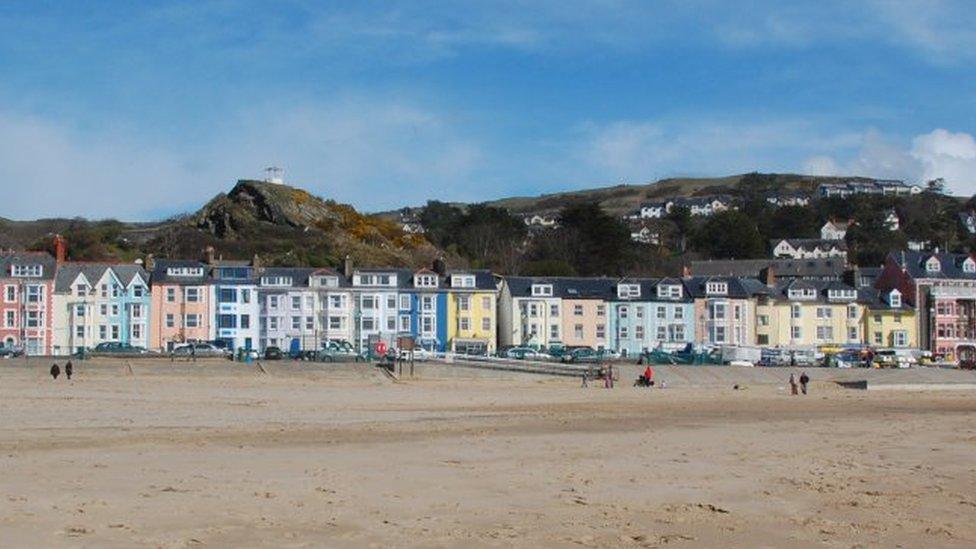
- Published26 October 2022
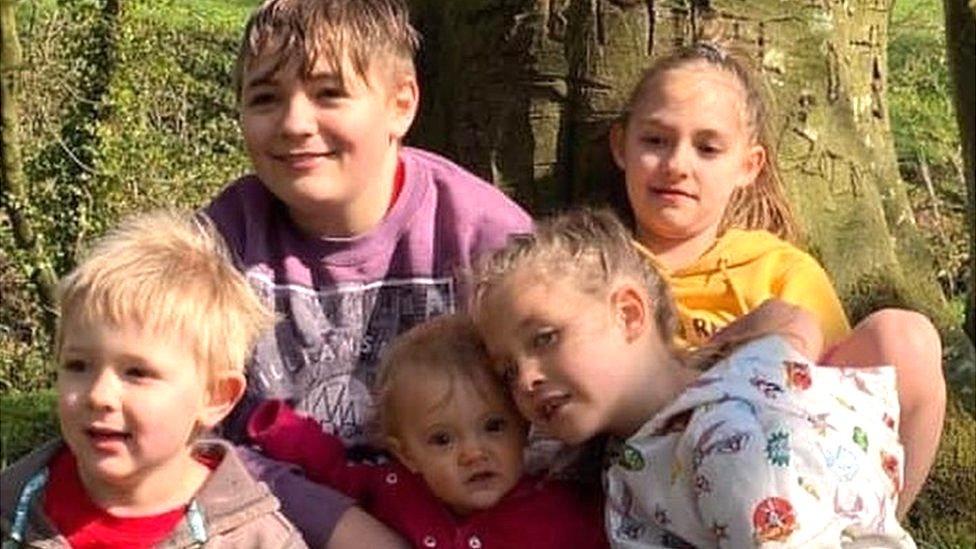
- Published28 October 2022
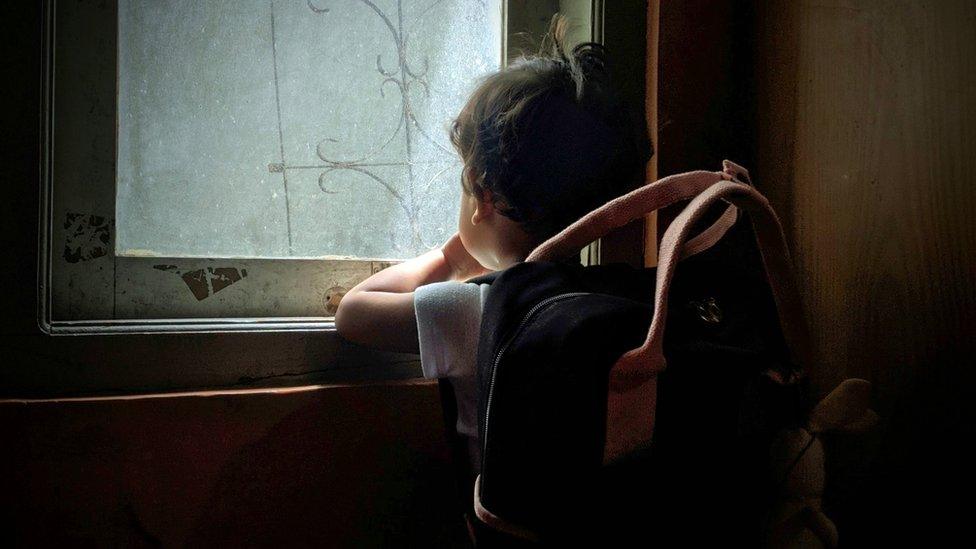
- Published4 August 2022
